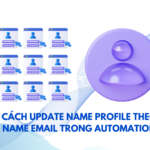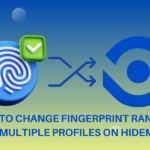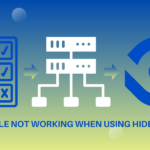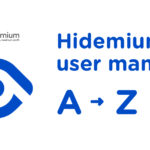The world of e-commerce and dropshipping is growing rapidly, with more and more businesses looking to take advantage of the opportunities presented by online sales. However, with this growth comes an increase in online fraud, which can lead to account locks, chargebacks, and other financial losses. To prevent these issues, many businesses are turning to use Anti-detect Browser, which provides a virtual environment for browsing and helps prevent detection by e-commerce platforms, payment processors, and other systems.
Features of Anti-detect Browser
Anti-detect Browser is a software application designed to help prevent online fraud and detection by creating a unique browser fingerprint that mimics the characteristics of a real browser. This makes it difficult for e-commerce platforms and payment processors to detect unusual browsing behavior and flag the account for potential fraud.
In addition to browser fingerprinting, Anti-detect Browser also offers features such as IP switching, device emulation, and cookie management, which can further enhance the security and privacy of the browsing session. These features can help prevent account lockouts and other security issues that can affect e-commerce and drop shipping businesses.
Benefits of Anti-detect Browser
+ Prevent account lockouts:
One of the key benefits of Antidetect Browser for e-commerce and dropshipping businesses is that it provides a way to prevent account lockouts, which can be a major issue for businesses that rely on online sales. When an account is locked, the seller may not be able to access their funds or manage their business, which can lead to significant financial and operational difficulties. By using Anti-detect Browser to create a unique browser fingerprint, businesses can reduce the risk of account lockouts and improve the security of their online transactions.
+ Protect their online privacy and security
Another benefit of Anti-detect Browser is that it can help businesses protect their online privacy and security. By creating a virtual environment for browsing, businesses can prevent their online activity from being tracked by third parties or malicious actors. This can help prevent identity theft, fraud, and other online security issues.
+ Multi-browser functionality
In addition to these benefits, Antidetect Browser also offers multi-browser functionality, which allows businesses to switch between different browser profiles with unique characteristics. This can be helpful for businesses that need to manage multiple online accounts, such as social media profiles, email accounts, or payment processors. By using a different browser profile for each account, businesses can reduce the risk of detection and improve the security of their online activity.
Despite its benefits, it is important to note that Antidetect Browser should be used responsibly and in compliance with relevant laws and regulations. It is also important to follow best practices for fraud prevention and security to ensure the safety and integrity of the business.
The optimal method of using Antidetect Browser
To get the most out of Anti-detect Browser, businesses should consider the following best practices:
- Use it responsibly: While Antidetect Browser can be a useful tool to prevent online fraud, it should be used responsibly and in compliance with relevant laws and regulations. Businesses should ensure that they do not engage in illegal or unethical activities and should use the software in a way that does not violate the terms of service of the e-commerce platform or payment processor.
- Stay up to date: Like any software application, Anti-detect Browser must be updated to ensure that it functions properly and provides the best possible protection against online fraud. Businesses should check for updates regularly and install them as soon as they become available.
- Use it in conjunction with other security measures: While Antidetect Browser can be helpful for preventing online fraud, it should not be relied on as the sole method of protection. Businesses should also use other security measures such as two-factor authentication, encryption, and antivirus software to ensure the safety and integrity of their online activity.
- Educate employees: Businesses should ensure that all employees who have access to online accounts are educated about the risks of online fraud and how to prevent it. They should be trained on best practices for password management, phishing prevention, and other security measures.
- Monitor accounts regularly: Businesses should monitor their online accounts regularly to detect any unusual activity or signs of potential fraud. This can include checking for unauthorized transactions, reviewing account activity logs, and analyzing other data to identify potential security issues.
In addition to these best practices, businesses should also consider the potential risks of using Anti-detect Browser. While this software can be helpful in preventing and detecting online fraud, it can also be used for illegal or unethical activities, such as fraud, identity theft or other online crimes. Therefore, it is important that businesses use the software responsibly and in compliance with relevant laws and regulations.
Overall, Anti-detect Browser can be a useful tool for e-commerce and drop shipping businesses looking to prevent online fraud and account lockouts. By providing a virtual environment for browsing and creating unique browser fingerprints, businesses can reduce the risk of being detected by e-commerce platforms and payment processors, and improve reliability. security and privacy for their online transactions.
>>> Learn more about Anti-detect Browser: Hidemium software!
However, businesses should also use other security measures in conjunction with Anti-detect Browser, and should ensure that they are using the software responsibly and in compliance with relevant laws and regulations. By following best practices for fraud prevention and security, businesses can ensure the safety and integrity of their online activity, and protect themselves from potential financial and operational difficulties.





































